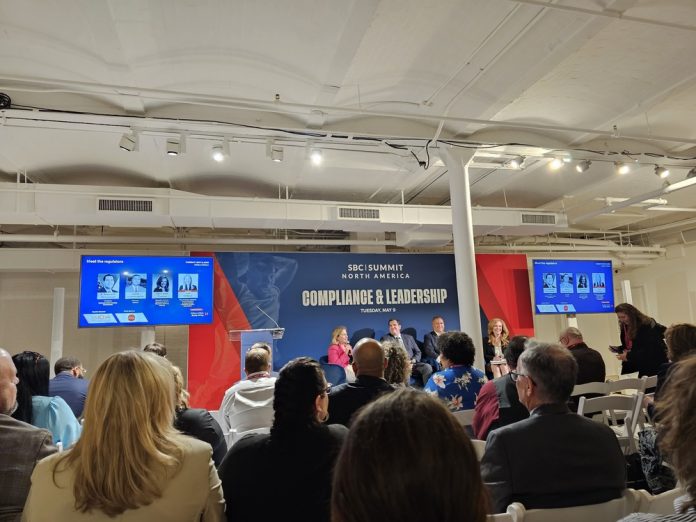As the tribal gaming industry celebrates the 35th anniversary of the Indian Gaming Regulatory Act (IGRA) this year, regulators took the time to outline some of the key changes and challenges that tribal governments face.
Key in this regard was the development of technology, which has drastically changed the way the players gamble, meaning that regulators must keep up with such evolution to ensure player safety and operator compliance.
Jamie Hummingbird, Chairman of the National Tribal Gaming Commissioners and Regulators, told a “Meet the Regulators” panel at the Compliance and Leadership Track ahead of SBC Summit North America: “Nobody understood what was coming in terms of technology back in 1988. Prior to that, it was primarily paper. It’s forced us to change our mindset because now we are operating in a world that is known as neutrals, but it’s one that we haven’t been immersed in as much as we have in the last couple of years.”
Hummingbird was joined on the panel by moderator Cait DeBaun, VP of Strategic Communications and Responsibility at the American Gaming Association, E. Sequoyah Simermeyer, Chairman of the National Indian Gaming Commission, and Mary-Beth Thomas, Executive Director of the Tennessee Sports Wagering Advisory Council.
Simermeyer added that the NIGC has constantly evaluated the development of technology and how the organization can update regulations with both the player and operator in mind.
He explained the opportunities that technology has brought to tribal gaming operators: “We’re particularly focused on new technology and how regulations can provide more flexibilities in that area. I think it’s important in terms of our responsibility to facilitate responsible growth and one area to make sure that we’re not creating turnovers, remove loss and make sure customers are doing and looking at transitions.
“So you have an opportunity to think about ways in the recent years to do that, during the pandemic, especially a lot of questions related to digital wallets and new channels like that.”
Meanwhile, for Thomas, technology has been ingrained in everything the Tennessee SWARC has been doing since it took over regulatory oversight in 2022. With online sports betting the only legal gambling outside the lottery, Thomas noted that the regulator can delve deep into sports betting as the situation is unlikely to change in the near future.
She told the audience in New York City that technology, new suppliers, and analytics have helped the regulator to create a safe platform in Tennessee.
Thomas outlined: “We are fortunate that with our online regulation all of the things that we have at our fingertips to really regulate and see what our operators are doing, not just looking at their platform, but our back office access and our geolocation, monitoring, access, and all of our dashboard access with US integrity, and IGA and all of these really amazing technology platforms that let us see things and verify them on our own as regulators.”
Above all, according to the panelists, efficient regulation comes through effective communication and collaboration between all industry stakeholders.
When Shelley White, CEO of the RGC in Canada, asked about how collaboration has influenced the regulatory landscape in the US, DeBaun explained that the AGA has benefited immensely from the communication that it has with regulators and operators.
DeBaun cited the issue of problem gambling helplines to illustrate the point, noting: “It’s so essential to what we do and how we educate regulators and work together to get to bring these issues to light. Think about the helplines in the US. (There are) Dozens of helplines and the industry comes together to say ‘how can we fix this for consumers’ or for our own operational standards. That’s helped through dvertising and what we’ve seen with our marketing code. The leagues jump in to provide their perspective. I think collaboration is a key part of responsible gaming regulation.”














